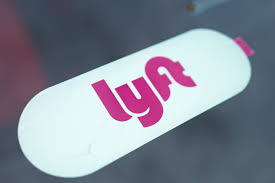The Short Sellers Are Coming For Lyft – But Will They Get Squeezed?

A volatile IPO. An uncertain business model. No profits in sight.
Shorting Lyft sounds like a no-brainer, right? Plenty of investors think so: As of Thursday roughly 41% of Lyft shares, worth some $ 937 million, were being shorted according to S3 Partners Managing Director Ihor Dusaniwsky. In contrast, that figure is closer to 23% for Tesla—another company that has divided investors.
There is often “more interest on being short in a popular IPO” than in a lesser known one, said IHS Markit’s Samuel Pierson. As IPOs are priced to pop on the first day, short sellers may buy in the hopes of catching a short term sell off in the coming days and weeks. Or, they may truly believe the company is overvalued and be placing a long term bet that the stock will correct. Either way the widespread interest has made shorting Lyft a costly proposition: In the days following its IPO a week ago, the cost to borrow a share of Lyft rose above 100% of the price of a share itself—making it the most expensive U.S. company to short (among any stock with over $ 5 million worth of shares being lent out), according to Pierson. More recently, that figure has dipped as more investors have made their shares available for lending.
In the meantime Lyft short sellers are certainly looking ahead to two upcoming important events: one that may give the stock a boost, and one that may depress it. Roughly 25 days after an IPO, the so-called “quiet period” comes to an end. That will allow some of a newly public company’s greatest cheerleaders, their underwriters, to put out new ratings on the stock. And (surprise, surprise) analysts at the underwriting banks (in Lyft’s case, that includes Jefferies, Credit Suisse, and J.P. Morgan) tend to see upside in the firms their companies underwrite. (Remember Snapchat maker, Snap’s 2017 IPO? Early analysts that didn’t take part in the offering tended to promote “hold” or “sell” ratings on the stock. But when the quiet period came to end, it was a sea of “buys” and “holds,” boosting Snap’s stock 5%.)
Then comes the so-called “lock-up period” expiration. Executives and major shareholders at Lyft are barred from selling stock in the company 180 days immediately following the IPO due to this clause. But if these owners sell shares en masse when the period ends, flooding the market and depressing the stock price, it could be a boon to short sellers.
But not all the smart money is betting against Lyft. One prominent short seller, Citron Research’s Andrew Left, is buying Lyft shares. On Friday, Left authored a research report dubbing Lyft the “Amateur Short,” noting Lyft’s rising number of quarterly active riders, as well as how much larger the market could grow. Ride sharing, he noted, currently accounts for only 1% of miles travelled. As he wrote to clients, “Shorting disruptive companies that dominate a megatrend simply because they lose money is a sure way to go broke.”
Either way, “We can expect Lyft to be a significant short in the market for long time,” said S3 Partners Managing Director Ihor Dusaniwsky. And while and long vs. short debate rages on, one thing’s for sure: Carl Icahn, who reportedly sold his 2.7% stake of Lyft ahead of the IPO for about $ 550 million, according to the Wall Street Journal, may have had the best timing of all.
